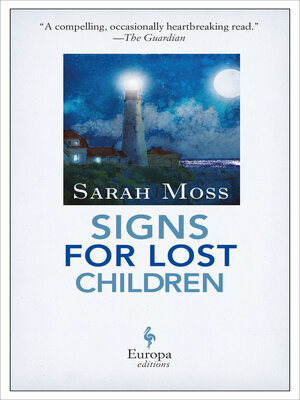
Sign up to save your library
With an OverDrive account, you can save your favorite libraries for at-a-glance information about availability. Find out more about OverDrive accounts.
Find this title in Libby, the library reading app by OverDrive.



Search for a digital library with this title
Title found at these libraries:
| Library Name | Distance |
|---|---|
| Loading... |
In Victorian Cornwall, a doctor risks her marriage to fight for female asylum patients: “One of the most memorable heroines of recent fiction ” (The Times, London).
Shortlisted for the Wellcome Book Prize for Historical Fiction
Ally Moberley, a recently qualified doctor, never expected to marry until she met architect Tom Cavendish. But only weeks into their marriage, Tom sets out for Japan, leaving Ally as she begins work at the Truro Asylum in Cornwall.
Horrified by the brutal attitudes of male doctors and nurses toward their female patients, Ally plunges into the institutional politics of women’s mental health at a time when madness is only just being imagined as treatable. She has to contend with a longstanding tradition of permanently institutionalizing women who are deemed difficult, all the while fighting to be taken seriously in a profession dominated by men.
Meanwhile, Tom is overseeing the building of lighthouses, and has a commission from a wealthy collector to bring back embroideries and woodwork. As he travels Japan in search of these enchanting objects, he begins to question the value of the life he left in England. As Ally becomes increasingly absorbed in the moral importance of her work, and Tom pursues his interests on the other side of the world, they will return to each other as different people.
From the blustery coast of Western England to the landscape of Japan, Signs for Lost Children offers a “fine exploration of marriage and the complex minds of ‘lost children’—that is, all of us” (The New York Times Book Review).
“Compelling . . . A quietly devastating portrait of the way identity crumbles when you’ve nothing, or no one, to pin it to.” —The Guardian
Shortlisted for the Wellcome Book Prize for Historical Fiction
Ally Moberley, a recently qualified doctor, never expected to marry until she met architect Tom Cavendish. But only weeks into their marriage, Tom sets out for Japan, leaving Ally as she begins work at the Truro Asylum in Cornwall.
Horrified by the brutal attitudes of male doctors and nurses toward their female patients, Ally plunges into the institutional politics of women’s mental health at a time when madness is only just being imagined as treatable. She has to contend with a longstanding tradition of permanently institutionalizing women who are deemed difficult, all the while fighting to be taken seriously in a profession dominated by men.
Meanwhile, Tom is overseeing the building of lighthouses, and has a commission from a wealthy collector to bring back embroideries and woodwork. As he travels Japan in search of these enchanting objects, he begins to question the value of the life he left in England. As Ally becomes increasingly absorbed in the moral importance of her work, and Tom pursues his interests on the other side of the world, they will return to each other as different people.
From the blustery coast of Western England to the landscape of Japan, Signs for Lost Children offers a “fine exploration of marriage and the complex minds of ‘lost children’—that is, all of us” (The New York Times Book Review).
“Compelling . . . A quietly devastating portrait of the way identity crumbles when you’ve nothing, or no one, to pin it to.” —The Guardian







